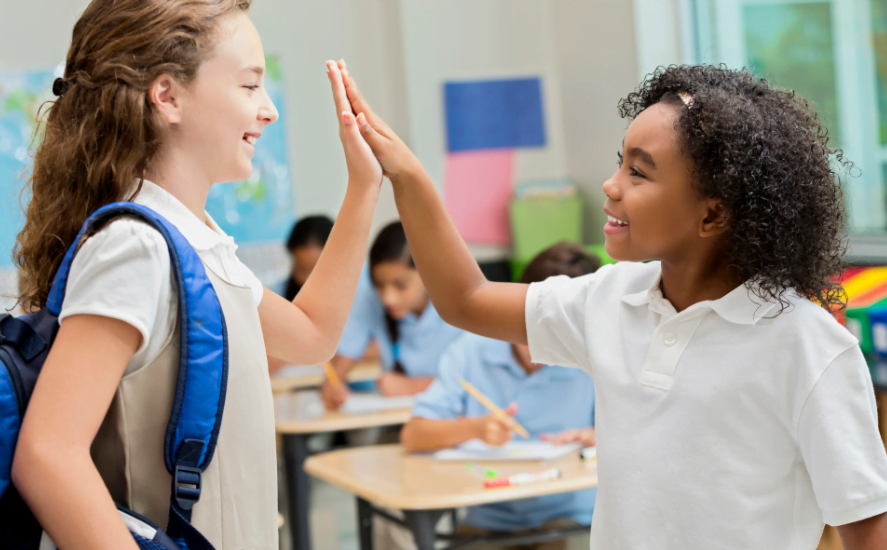Respect is an essential component of a positive and productive learning environment. Without it, students and teachers alike struggle to feel safe, valued, and heard. In this article, we will explore the reasons why respect is so important in a school setting, and the ways in which it can improve the overall learning experience for everyone involved.
First and foremost, respect creates a sense of safety and security in the classroom. When students feel respected by their teachers and peers, they are more likely to trust and open up to them, which in turn leads to better communication and understanding. This sense of safety is especially important for students who may be struggling with issues such as bullying, mental health, or personal problems at home. A safe and secure learning environment is crucial for students to thrive and be able to reach their full potential. It allows students to feel comfortable to express themselves, ask questions, and participate in class without fear of judgment or ridicule.
Secondly, respect promotes a culture of inclusivity and acceptance. When students feel respected, they are more likely to respect others, regardless of their background, race, gender, or sexual orientation. This creates a more inclusive and accepting environment where everyone can feel comfortable and valued. This is important for student’s social-emotional development and well-being. When students feel like they are part of a community and that they belong, they are more likely to be engaged in their learning and form positive relationships with their peers and teachers. Furthermore, a culture of inclusivity and acceptance promotes empathy and understanding among students, which is vital for building a harmonious and cohesive society.
Thirdly, respect is a key component of effective communication and collaboration. When students and teachers respect each other, they are more likely to listen to and consider each other’s perspectives, which in turn leads to more productive and meaningful discussions and exchanges. This is important for student’s critical thinking and problem-solving skills. When students feel respected and heard, they are more likely to share their thoughts and ideas, which can lead to more creative and innovative solutions. Additionally, when students and teachers respect each other, they are more likely to build a positive and supportive relationship, which can lead to more effective communication and collaboration. This can greatly benefit both students and teachers, as it allows them to work together to achieve their goals and overcome challenges.
Lastly, respect is an essential part of building strong and positive relationships. When students and teachers respect each other, they are more likely to build trust and mutual understanding, which in turn leads to a more positive and supportive classroom community. This is important for student’s personal and academic success. Positive and supportive relationships are crucial for students to develop a sense of belonging and self-worth. When students feel like they are part of a community, they are more likely to be engaged in their learning and form positive relationships with their peers and teachers. Furthermore, positive and supportive relationships can help students to develop resilience, which is vital for dealing with challenges and setbacks in life.
Respect is the Foundation of a Positive Learning Environment:
Respect is essential to creating a positive learning environment. When students feel respected by their teachers and peers, they are more likely to feel valued and invested in their education. Teachers can foster a culture of respect by modeling respectful behavior, acknowledging the unique strengths and contributions of each student, and creating opportunities for students to express their ideas and opinions in a safe and supportive environment. When respect is established as a foundation, it sets the tone for a positive and productive classroom.
Respect Promotes Academic Success:
Respect is not only important for creating a positive learning environment, but it is also linked to academic success. When students feel respected, they are more likely to engage in their learning and participate in class. Respectful interactions between teachers and students can help foster a sense of trust and mutual understanding, leading to increased academic achievement.
Respect Builds Strong Relationships:
Respectful relationships between students and teachers are built on trust, communication, and empathy. When teachers model respectful behavior and listen actively to their students, they create an environment that encourages students to do the same. When students feel that their voices are heard and that their perspectives are valued, they are more likely to form positive relationships with their peers and teachers.
Respect Creates a Safe and Inclusive Space:
A respectful learning environment is a safe and inclusive space where all students feel valued and accepted. When respect is established as a foundation, students are more likely to feel comfortable expressing their ideas and opinions, even if they differ from their classmates. This can lead to a rich exchange of ideas and perspectives, which can help students develop a greater understanding and appreciation of diverse cultures and backgrounds.
Respect Teaches Valuable Life Skills:
Respect is a valuable life skill that goes beyond the classroom. When students learn to respect themselves and others, they are better equipped to navigate the complexities of the world around them. By modeling respectful behavior, teachers can help students develop skills in communication, conflict resolution, empathy, and understanding. These skills are critical for success in school, the workplace, and personal relationships.
In conclusion, respect is an essential component of a positive and productive learning environment. It creates a sense of safety and security, promotes inclusivity and acceptance, is a key component of effective communication and collaboration, and is an essential part of building strong and positive relationships. By promoting respect in the classroom, we can improve the overall learning experience for everyone involved. Teachers, staff, and students alike all have a role in creating a respectful and positive learning environment, and by working together, we can ensure that all students have the opportunity to reach their full potential.


The article is about how we should respect people, and create a good relationship with other people.